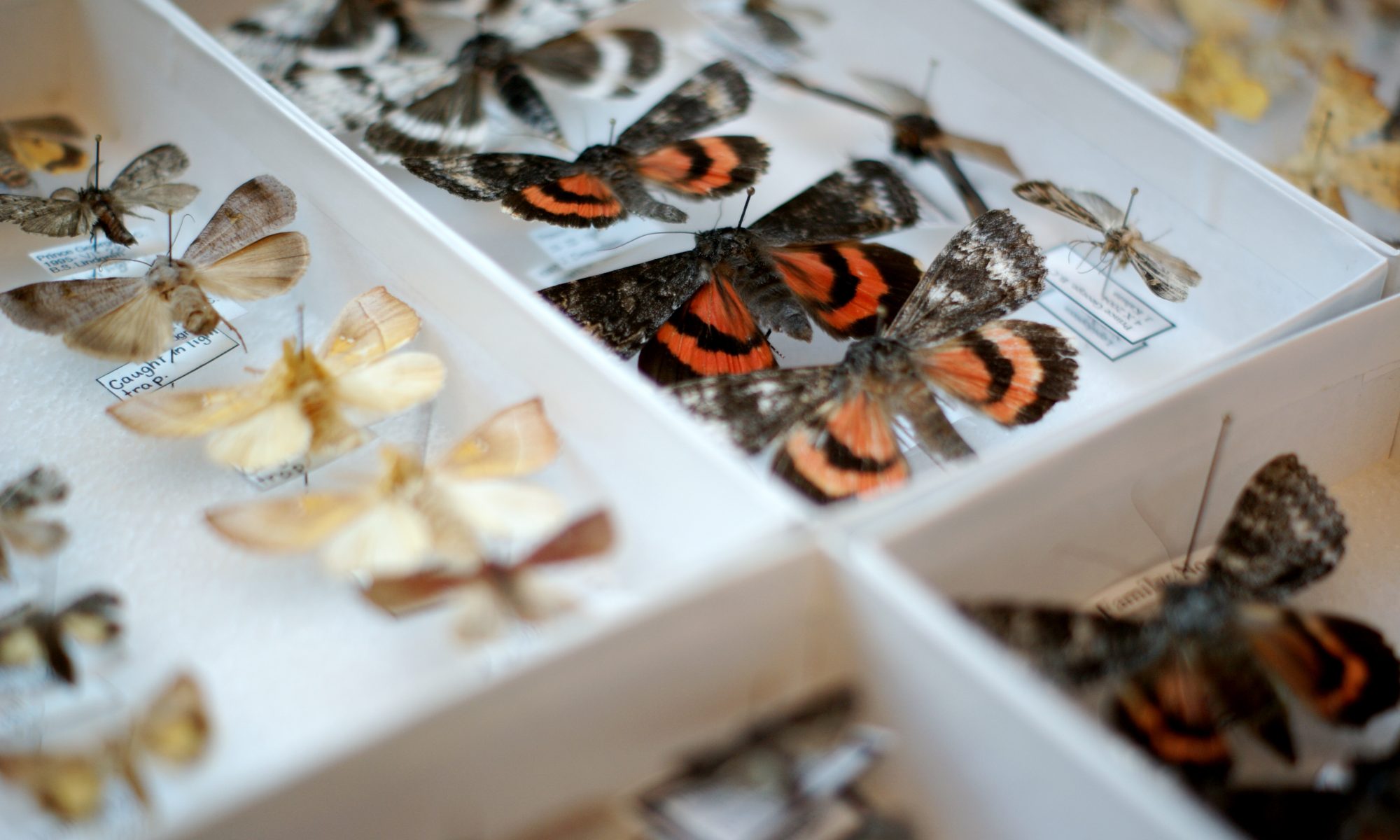Today, 7 November 2013, is the 100th anniversary of the death of the great naturalist, explorer, entomologist (of course I had to mention that), and scholar-of-all-trades, Alfred Russel Wallace.
Wallace is remembered by many as one of the two co-discoverers of what we today consider the foundation of theory of evolution. The other discoverer being the much better known Charles Darwin.
Wallace and Darwin were both products of their age – a fact that is inescapable if you read their works. But, aside from that and the fact that they both came up with the same idea, in many ways they couldn’t have been more different. Darwin was born into privilege; Wallace was not. Darwin attended some of the best schools; Wallace did not. Darwin formulated his ideas while traveling and then mulled them over for years after returning home from his Beagle voyage; Wallace began to notice patterns in the field and worked toward sharing his ideas quickly. Darwin was financially secure for his entire life; Wallace often struggled to make ends meet and, in fact, did much of his collecting in order to sell specimens back home.
What did unite these two gentlemen was a love of nature and the discovery of an earth-shattering idea born of keen observation, intense study, and soaking in the scientific milieu of the time.
It’s usually very hard to say how an idea develops and who has absolute priority. New ideas, large or small, develop over time and are a direct result of trying other ideas on for size. Look at just about any scientific paper today, and you will usually see several co-authors. It was the same for the idea of natural selection. Others – contemporary and near-contemporary – such as Lamark and Darwin’s own grandfather, Erasmus, were giving the topic deep thought and consideration. Observations of life around them, and specimens brought back by intrepid adventurers like Bates and Wallace, told a tale of… something. It took Wallace and Darwin to put a finger on what exactly that something was.
While Wallace’s writings are sprinkled through with the idea, his thoughts are often summarized in what is called the Sarawak Law from a manuscript that he wrote while in Borneo entitled “On the Law Which Has Regulated the Introduction of New Species”:
Every species has come into existence coincident both in space and time with a pre-existing closely allied species.
These ideas, also discussed in an essay that Wallace sent to Darwin, prompted Darwin to get his well-developed thoughts down on paper. He and Wallace famously co-published the idea shortly thereafter, and then Darwin wrote and published his most famous book.
All this to say that while some continue to claim that “Darwin stole Wallace’s idea,” this could not be further from the truth. Both gentlemen were thinking along the same lines. Both, particularly Wallace, were open with their ideas and they engaged in discussion with each other on the topic. Both acted graciously toward the other during their entire lives. And both have an important place in history as the scholars who have helped to forge contemporary biology.
Over the past year or so, I have been reading Wallace’s “Malay Archipelago” a chapter or two at a time. What strikes me about his words, and what I believe is one of the biggest lessons that we should take from his life, is that sheer curiosity combined with a commitment to ongoing self-education and an ethic of hard work and focus will take you to intellectual places that no one has ever gone before. At some point, when I finally finish my slow read of his book, I plan to write a “review” (as if one is needed) of this literary masterpiece. Suffice it to say for now that besides his amazing observations of biological phenomenon, the reader can easily tell that Wallace was continually thinking about geography, geology, astronomy, social sciences, justice, culture, anthropology, economics, and on and on. He was continually observing, continually recording, and continually consolidating his thoughts. His scholarly example – and his gracious bearing and commitment to openness – is one that we need to foster more and more in our current era.
So, sometime over the next few days, why not spend some time dipping into a bit of what Wallace has written, and see how his scholarly and personal example might be important for our scholarly endeavors today and into the future.
Along with some of the links above, here are a few other resources to get you started:
- A great summary of Wallace’s life by David Attenborough (if nothing else, you must watch this)
- Wallace Letters Online
- Books by Wallace at Gutenberg (even a book on Mars!)
- Wallace’s notebooks
- Wallace on Twitter
As Attenborough says in his video:
For me, there is no more admirable character in the history of science.
It could not be said better.

